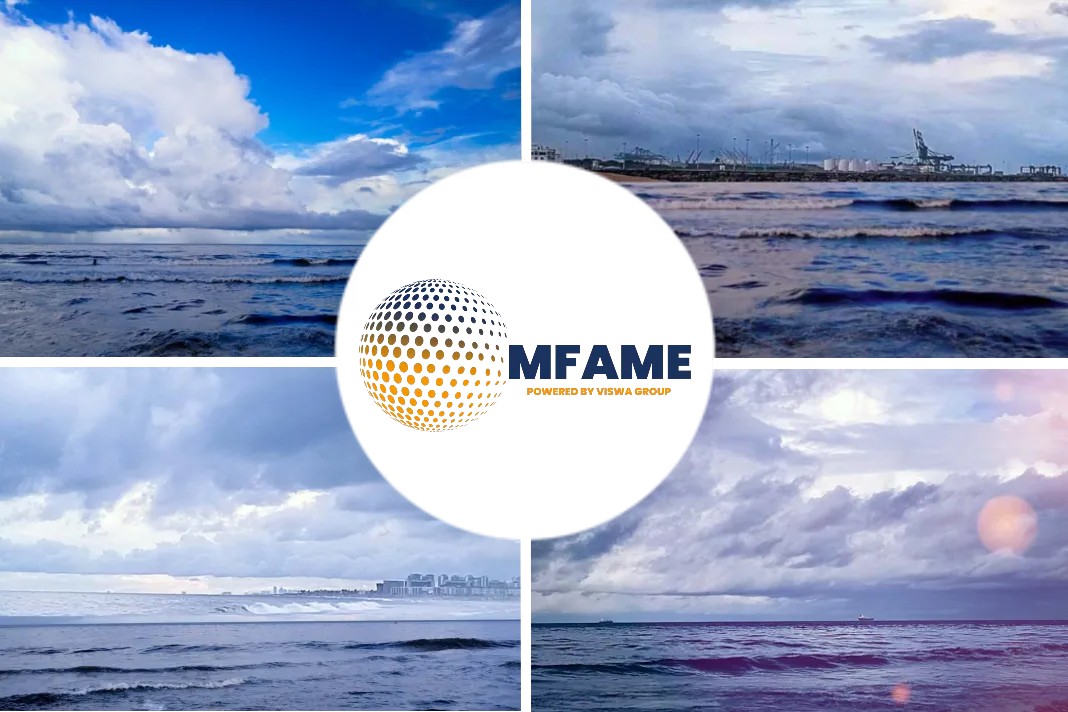First-of-its-kind agreement between a freight forwarder and a shipping line • At least 30,000 standard containers (TEU) will be transported on the world’s oceans with net-zero emissions in 2023 • Certified sustainable, second-generation biofuels are helping to decarbonize ocean freight
DB Schenker is expanding its green ocean freight services and has secured an arrangement to use 12,000 metric tons of biofuel component for all of its own consolidated cargo, less-than-container load (LCL), full-container-load (FCL) and refrigerated containers (reefer containers), from MSC Mediterranean Shipping Company, the world’s largest container line.
The amount of biofuel purchased is enough to save an additional 35,000 metric tons of CO2 equivalents (CO2e) along the entire production chain (well-to-wake) in the market. The equivalent of around 30,000 standard containers (TEU) may be shipped with net-zero CO2 emissions, depending on how the fuel is used during navigation.
The purchase agreement signed this month represents one of the largest carbon-insetting biofuel deals between a freight forwarder and a shipping company. It sets out the use of certified sustainable, second-generation biofuels – derived from used cooking oil – instead of conventional fossil-based marine fuel. The 12,000 metric tons of biofuel component will be blended between 20 and 30%, resulting in approximately 50,000 metric tons of blended biofuel to be used in MSC’s container ships. The agreement allows DB Schenker to offer its customers an off-the-shelf product that enables net-zero ocean transport.
Certified emission reduction for customers’ carbon footprint
This partnership is the latest impressive example of DB Schenker’s commitment to clean logistics and is another solid contribution to increasing the demand for alternative fuels in the industry. Similar to net-zero flights using sustainable aviation fuel (SAF), customers can now book regular net-zero ocean transport and receive an annual certificate of their emission reduction for their carbon footprint. The latter means that every metric ton of biofuel is bunkered in addition to any legal mandate and carrier’s set fuel purchase orders.
Thorsten Meincke, Global Board Member for Air & Ocean Freight at DB Schenker: “Together with MSC, we are offering our customers a convenient and clean solution using the latest generation of marine biofuel to help them achieve a real additional reduction in their emissions. We are doing this because we firmly believe it is the right thing to do and are therefore paying for biofuel purchases in advance. One thing is certain: the more customers demand climate neutrality throughout supply chains, the faster we achieve clean container ocean freight.”
Caroline Becquart, Senior Vice President of MSC: “Decarbonizing ocean freight cannot be achieved by a single player and requires collaboration between shipping and logistics companies and their customers. MSC Biofuel Solution is our first certified carbon insetting program that reduces emissions in our customers’ supply chains, accelerating the energy transition by creating demand for net-zero-carbon shipping and delivering direct CO2 savings. We’re delighted to partner with DB Schenker, with whom we share similar climate ambitions along our collective journey to net zero.”
Biofuel can be used for regular ocean freight operations without adjusting a ship’s infrastructure or supply chain, making it a particularly convenient solution. MSC Biofuel Solution is designed to be a win-win approach to move from ambition to action. MSC bunkers sustainable biofuel, and clients benefit from the CO2 savings, passing them on throughout the shipping value chain. This differentiates the program from carbon offsetting initiatives that focus on future emission reductions outside the shipping industry.
Did you subscribe to our daily newsletter?
It’s Free! Click here to Subscribe!
Source: DB Schenker
















